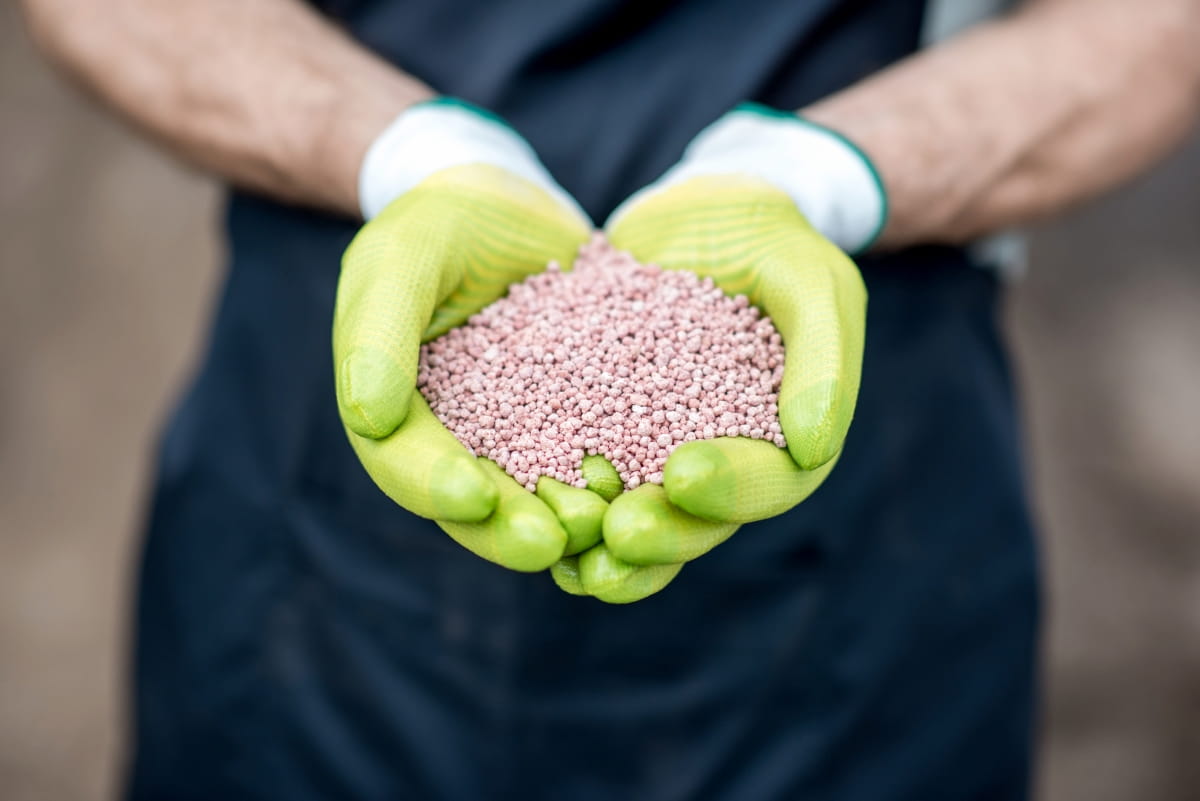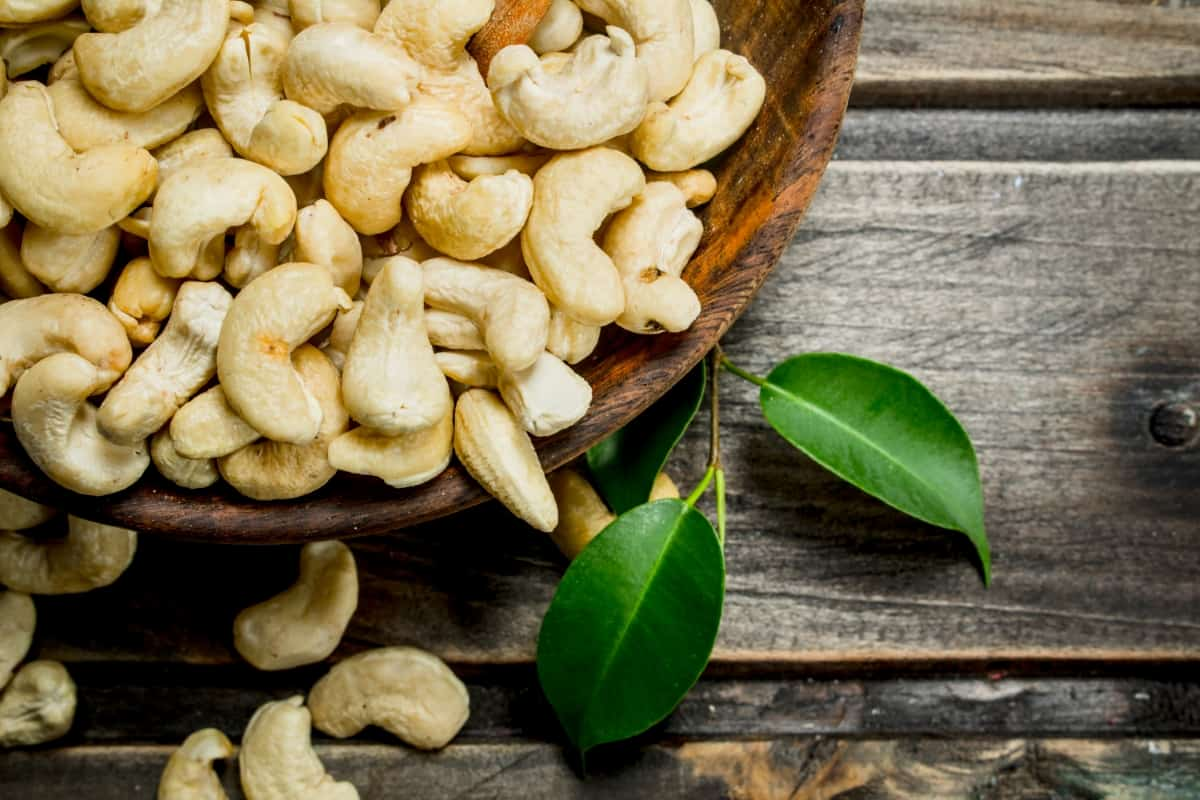Cashew gardens require proper fertilizer management to ensure optimal growth, yield, and overall health of the cashew trees. Fertilizer management involves understanding the specific nutrient requirements of cashew trees and selecting appropriate types of fertilizers. By implementing effective fertilizer practices, cashew farmers can enhance productivity and achieve sustainable cultivation.

Fertilizer Management in Cashew Gardens
Understand the Nutrient Requirements of Cashew Trees
Macro-Nutrients
- Nitrogen (N): Essential for leaf and shoot development.
- Phosphorus (P): Vital for root development, flowering, and fruiting.
- Potassium (K): Supports overall plant vigor and disease resistance.
Micro-Nutrients
- Zinc (Zn): Important for hormone regulation and enzyme activation.
- Iron (Fe): Crucial for chlorophyll production and photosynthesis.
- Manganese (Mn): Aids in nutrient absorption and enzyme activation.
- Copper (Cu): Supports various metabolic processes in the plant.
Types of Fertilizers Suitable for Cashew Gardens
Organic Fertilizers: Compost, manure, and organic amendments provide a slow-release source of nutrients. They improve soil structure, water retention, and microbial activity. Regular application of organic matter helps maintain soil fertility over the long term.
Inorganic Fertilizers: Balanced fertilizers with NPK ratios tailored to cashew tree requirements can be applied at specific growth stages. Customized blends or granular formulations can ensure precise nutrient delivery.
Foliar Fertilizers: In addition to soil applications, foliar sprays containing essential nutrients can be used to address immediate nutrient needs. This method is particularly useful during critical growth phases.
Soil Amendments: Gypsum or lime may be necessary to address soil pH imbalances. Adjusting pH levels ensures optimal nutrient uptake by cashew trees.
Optimal Timing for Fertilizer Application in Cashew Gardens
The optimal timing for fertilizer application in cashew gardens depends on the growth stages of the trees. Early in the growing season, apply a balanced fertilizer to support vegetative growth, emphasizing nitrogen. As the trees enter the flowering and fruiting stages, shift focus to phosphorus and potassium for optimal reproductive development.
Split applications can be beneficial, with initial fertilization before the rainy season and subsequent doses during key growth phases. Regular soil testing helps fine-tune nutrient applications, ensuring that cashew trees receive the right balance of nutrients at the right time. Adjustments based on seasonal variations and specific regional conditions contribute to a targeted and efficient fertilizer management strategy, promoting healthy cashew orchards and maximizing yield.
Nutrient Deficiency Symptoms in Cashew Trees
- Nutrient deficiencies in cashew trees manifest through distinctive symptoms—a lack of nitrogen results in the yellowing of older leaves, stunted growth, and reduced canopy density.
- Phosphorus deficiency leads to poor flowering, weak fruit development, and purplish discoloration on leaves.
- Insufficient potassium causes leaf margins to brown, reduces fruit quality, and weakens overall tree vigor.
- Magnesium deficiency is evident in yellowing between leaf veins.
- Micronutrient shortages, such as zinc and iron, cause interveinal chlorosis and leaf deformities.
- Timely identification of these symptoms through visual inspection allows growers to address nutrient deficiencies promptly, optimizing cashew tree health and ensuring a successful harvest.
Organic Fertilizer Options for Sustainable Cashew Cultivation
In sustainable cashew cultivation, organic fertilizers play a pivotal role in enhancing soil fertility while minimizing environmental impact. Options include well-rotted compost, a rich organic matter source that improves soil structure and nutrient retention. Additionally, livestock manure, such as cow or poultry manure, provides essential nutrients and encourages beneficial microbial activity.
In case you missed it: 1-Acre Cashew Farming Cost and Profit: Production Economics, Cultivation Project Report

Cover crops like legumes not only fix nitrogen but also prevent soil erosion. Utilizing organic fertilizers promotes long-term soil health, reduces reliance on synthetic chemicals, and fosters a more sustainable agroecosystem. Embracing these organic alternatives contributes to the overall well-being of the cashew orchard, ensuring both environmental sustainability and the production of high-quality, nutritious cashew nuts.
Fertilizer Application Techniques for Cashew Gardens
- Implementing a combination of broadcast and band application methods is advisable. Broadcast application evenly spreads fertilizer over the soil surface, promoting uniform nutrient distribution.
- Band application involves placing fertilizer in concentrated bands along the tree’s drip line, focusing nutrients where they are most needed.
- Splitting the annual fertilizer dose into multiple applications, aligned with key growth stages, ensures a consistent nutrient supply.
- Deep placement of fertilizers below the soil surface helps prevent nutrient runoff and enhances nutrient uptake efficiency.
- Additionally, incorporating fertigation, where fertilizers are dissolved in irrigation water, enables precise nutrient delivery to the root zone.
- Regular soil testing guides tailored fertilizer formulations, preventing over-application and minimizing environmental impact.
Balancing Nitrogen, Phosphorus, and Potassium in Cashew Gardens
During the early growth phase, prioritize nitrogen-rich fertilizers to stimulate vegetative development. Transition to phosphorus-rich formulations during flowering and fruit setting to support robust fruit development. In the later stages, emphasize potassium for enhanced fruit quality and disease resistance. Soil tests are essential for assessing nutrient levels, allowing precise adjustments.
Balancing these three key elements ensures a comprehensive approach to cashew tree nutrition, promoting healthy growth, increased yields, and resilient orchards. Regular inspecting and adjustments based on the specific developmental stages of the cashew trees contribute to sustained productivity and long-term soil health.
Foliar Feeding as a Supplemental Fertilization Method for Cashew Trees
Foliar feeding serves as a valuable supplemental fertilization method for cashew trees. By spraying nutrient-rich solutions directly onto the leaves, essential elements like nitrogen, phosphorus, and micronutrients are rapidly absorbed, providing immediate benefits. This technique is particularly effective during periods of increased nutrient demand or when soil conditions limit nutrient uptake.
Foliar feeding enhances overall nutrient efficiency, addresses deficiencies promptly, and supports crucial growth stages. However, it is essential to balance foliar applications with traditional soil-based fertilization for comprehensive cashew tree nutrition, ensuring a holistic approach to sustainable orchard management. Regular monitoring guides the timing and composition of foliar applications for optimal results.
Managing Soil pH for Effective Fertilizer Uptake in Cashew Gardens
Maintaining an optimal soil pH is essential for effective fertilizer uptake in cashew gardens. Cashew trees thrive in slightly acidic to neutral soils, with a pH range between 6.0 and 7.0. Deviations from this range can hinder nutrient availability and absorption. Regular soil testing helps monitor pH levels, enabling timely adjustments using lime or sulfur.
Correcting acidic or alkaline conditions enhances the solubility of essential nutrients, promoting their uptake by cashew roots. A balanced soil pH ensures efficient utilization of fertilizers, supporting healthy growth, increased yields, and overall sustainability in cashew orchards.
Evaluate the Impact of Fertilizer Management on Cashew Yield and Quality
Effective fertilizer management significantly influences both cashew yield and quality. A well-balanced application of nitrogen, phosphorus, and potassium, aligned with the tree’s growth stages, enhances vegetative growth, flowering, and fruit development. Adequate nutrient supply boosts cashew yields, ensuring a bountiful harvest. Furthermore, proper fertilization positively impacts nut quality, promoting uniform kernel development, higher nut weight, and improved resistance to diseases.
In case you missed it: How to Start a Cashew-Nut Processing Business: A Profitable Agriculture Idea

Conversely, imbalances or deficiencies can lead to reduced yields, inferior nut quality, and increased susceptibility to pests and diseases. Regular monitoring, soil testing, and precision in fertilizer applications are critical for optimizing cashew orchard productivity and sustaining high-quality nut production over the long term.
Conclusion
In conclusion, meticulous fertilizer management is paramount for maximizing cashew yield and quality. A judicious balance of nitrogen, phosphorus, and potassium, tailored to the tree’s growth stages, fosters robust growth and fruit development. Regular monitoring, soil testing, and sustainable practices ensure nutrient efficiency, contributing to healthy cashew orchards, abundant yields, and superior nut quality for sustained agricultural success.
- Feed Your Flock for Less: Top 10 Tips to Save on Chicken Feed
- Ultimate Guide to Ossabaw Island Hog: Breeding, Raising, Diet, and Care
- Hatching Answers: The Top 10 Reasons Your Chickens Aren’t Laying Eggs
- Eggs and Economics: Breaking Down the Cost of Raising Backyard Chickens
- Defend Your Greens: Proven Methods to Keep Iguanas Out of Your Garden
- Ultimate Guide to Cinnamon Queen Chicken: A Comprehensive Guide for Beginners
- Ultimate Guide to California Tan Chicken: Breeding, Raising, Diet, Egg-Production and Care
- Ultimate Guide to Marsh Daisy Chicken: Breeding, Raising, Diet, and Care
- 10 Types of Chicken Farming Businesses You Can Start for Profits